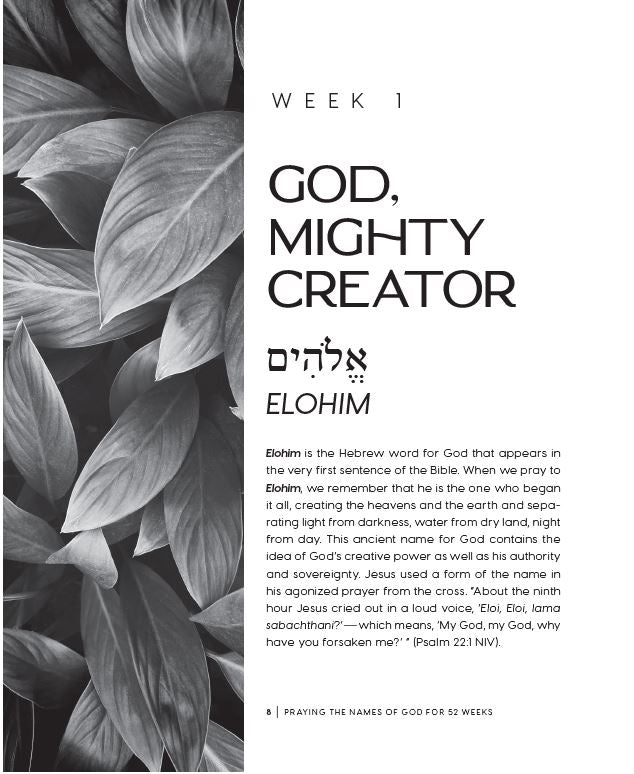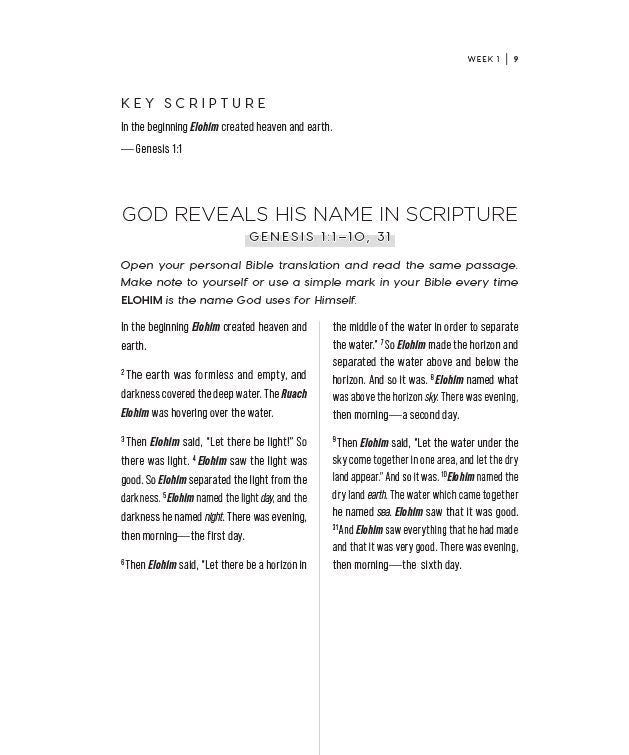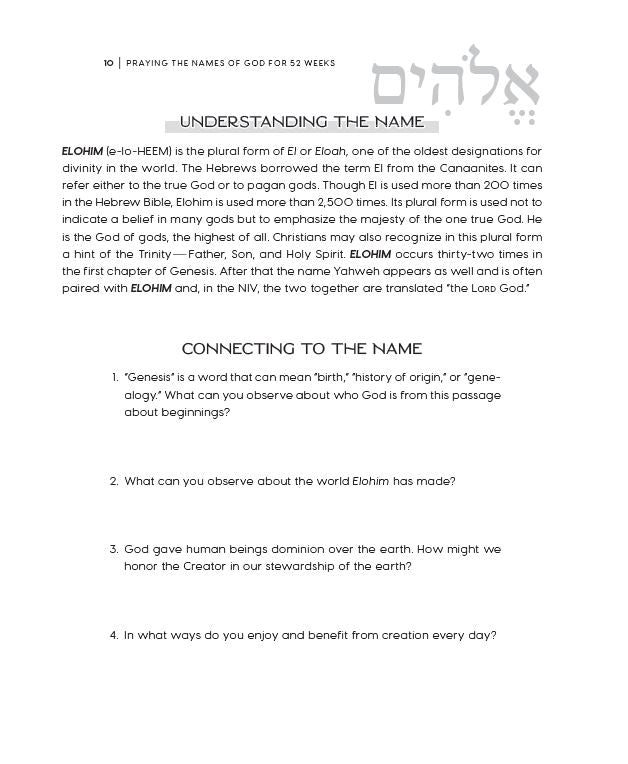יהוה רֹ ֵפה
YAHWEH ROPHE
The Hebrew word rophe means "heal," "cure," "restore," or "make whole." Shortly after His people left Egypt for the Promised Land, God revealed Himself as Yahweh Rophe, "the Lord who heals." The Hebrew Scriptures indicate that God is the source of all healing. As you pray to Yahweh Rophe, ask Him to search your heart. Take time to let Him show you what it contains. If He uncovers any sin, ask for His forgiveness and then pray for healing. The New Testament reveals Jesus as the Great Physician, the healer of body and soul, whose miracles point to the Kingdom of God.
KEY SCRIPTURE
He said, "If you will listen carefully to Yahweh your Elohim and do what He considers right, if you pay attention to His commands and obey all His laws, I will never make you suffer any of the diseases I made the Egyptians suffer, because I am Yahweh Ropheka." — Exodus 15:26
GOD REVEALS HIS NAME IN SCRIPTURE
EXODUS 15: 20–27
Open your personal Bible translation and read the same passage. Make note to yourself or using a simple mark in your Bible every time Yahweh Rophe YAHWEH ROPHE is the name God uses for Himself.
20 Then the prophet Miriam, Aaron's sister, took a tambourine in her hand. All the women, dancing with tambourines, followed her. 21 Miriam sang to them:
"Sing to Yahweh.
He has won a glorious victory.
He has thrown horses and their riders into the sea."
22 Moses led Israel away from the Red Sea into the desert of Shur. For three days they traveled in the desert without finding water. 23 When they came to Marah, they couldn't drink the water because it tasted bitter. That's why the place was called Marah [Bitter Place]. 24 The people complained about Moses by asking, "What are we supposed to drink?"
25 Moses cried out to Yahweh, and Yahweh showed[a] him a piece of wood. He threw it into the water, and the water became sweet.
There Yahweh set down laws and rules for them to live by, and there he tested them. 26 He said, "If you will listen carefully to Yahweh your Elohim and do what He considers right, if you pay attention to His commands and obey all His laws, I will never make you suffer any of the diseases I made the Egyptians suffer, because I am Yahweh Ropheka."
27 Next, they went to Elim, where there were 12 springs and 70 palm trees. They camped there by the water.
Understanding the Name
The verb from which Rophe is derived occurs sixty-seven times in the Old Testament. Though it often refers to physical healing, it usually has a larger meaning as well, involving the entire person. Rather than merely healing the body, Yahweh Rophe (yah-WEH ro-FEH) heals the mind and soul as well. This Hebrew verb is also used in other ways — for example, God "heals" water, land, and nations, and he "repairs" an altar. Significantly, God also heals sin and apostasy. The Hebrew Scriptures, in fact, link sickness and sin by presenting sin as the cause of illness just as it is the cause of death. In the New Testament, the corresponding Greek word is iaomai, which can refer to deliverance from death, demons, sickness, and sin.
Jesus, the great healer, clearly indicated that sickness is not necessarily caused by sin on the part of the person who is ill. Rather, it can result from living in a sinful, fallen world.















No comments:
Post a Comment